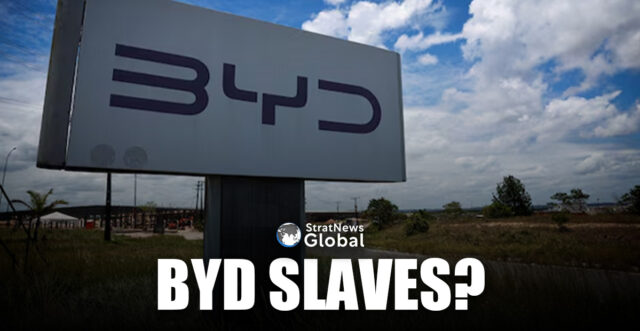Brazilian authorities discovered 163 Chinese nationals working under “slavery-like conditions” at a construction site for a factory owned by China’s electric vehicle maker BYD in Brazil’s Bahia state, the local labour prosecutor’s office said on Monday during a news conference.
According to the authorities, the workers were hired in China by another firm and brought to Brazil irregularly. They were labouring for long hours, in excess of what is allowed by Brazilian law, sometimes for seven days a week straight, while being kept in what authorities described as degrading conditions in their accommodations, among other labour violations.
BYD did not immediately reply to a request for comment. The labour authorities did not disclose the names of the firms involved in hiring the workers.
In Brazil, “slavery-like conditions” include forced labour, but also cover debt bondage, degrading work conditions, long hours that pose a risk to workers’ health and any work that violates human dignity.
The workers had to request permission to leave their lodgings, and at least 107 also had their passports withheld by their employer, said labour inspector Liane Durao, adding that conditions at the work site were dangerous.
“We found that the work of … these 163 workers, was carried out in slavery-like conditions,” she said.
“Minimum safety conditions were not being met in the work environment,” said Durao.
The operation is ongoing, said Durao, and fines have not yet been issued.
BYD’s Bahia State Site
Chinese electric vehicle manufacturer BYD is expanding its presence in Brazil with the construction of a new factory in Bahia state.
The facility is part of BYD’s strategy to strengthen its foothold in Latin America’s growing electric vehicle market.
The factory will produce electric buses and passenger vehicles, contributing to Brazil’s shift towards sustainable transportation solutions.
However, Brazil’s officials have initiated investigations to address potential violations of workers’ rights after finding 163 Chinese nationals working under “slavery-like conditions” at the BYD site.
(With inputs from Reuters)





